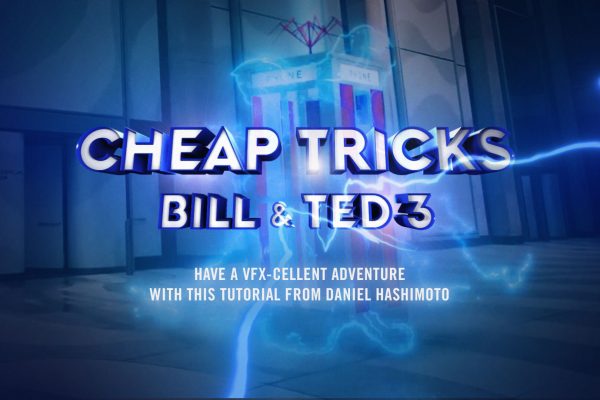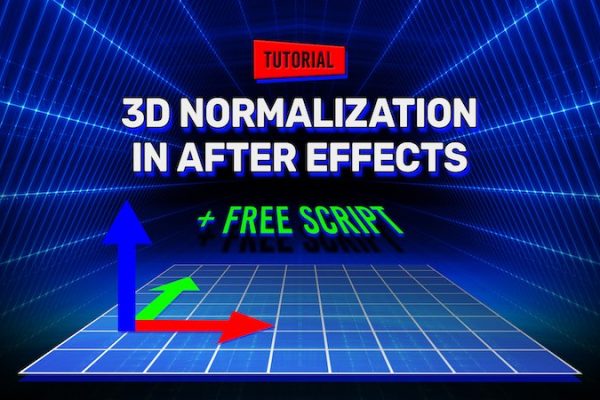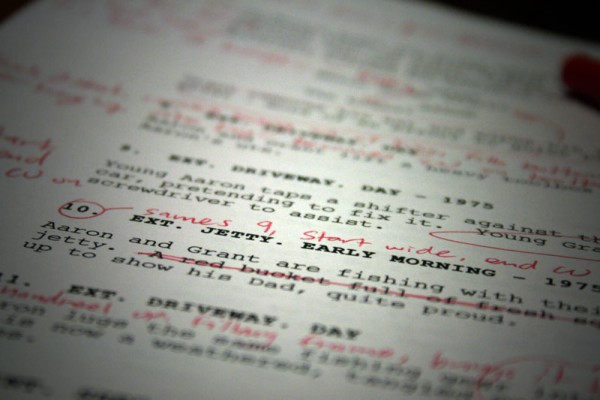When it comes to film scoring, so many indie directors leave it to the last minute. Time is spent in pre-production, then casting, shooting and editing, that many forget to enlist a compose until their film is well into post… If they do at all.
By Nathaniel Smith (with Nicole Boyd)
So, you’ve finished the final edit, the sound designer has done the dialogue/foley edit and is now demanding the score for the final mix – they have another job to start and your project is holding that up. Unfortunately, you’ve put off organising the music for so long now, that its too late to get an original score.
Inevitably, this leads to a weekend of panicked online searches for royalty free tunes.
For two full days your ears (and that of your film’s producer) will be assaulted, with row upon row of ridiculous trance/techno mixes of Gaga and Macklemore or Michael Jackson and One Direction – none of which is labelled correctly.
It becomes so overwhelming that all of those endless beats, and their senseless glitchy repetition, begin to wind their way deep into your subconscious. So that even your sleep, now feels like a drug-laden Hunter S. Thompson ‘Lizardman’ nightmare.
Moans of – “It didn’t have to be like this… If only we’d gotten a composer earlier, ” are heard, as you hit ‘play’ on yet another mislabeled Queen and 50 Cent mash-up.
Both you, and your producer – now resembling a Gonzo lawyer on the dark side of bad speed – swear by the Gods of Good Cinema, that you will never, never ever let this happen again .
Next time you make sure you find a composer before shooting. You’re fresh faced and bushy eyed and busy at work on your new project; secure in the knowledge that this time, you’ve enlisted a professional.
But how do you define the indefinable? How do you explain to your composer exactly the way you want your film’s score to sound? Or even what kind of music styles will work with each scene?
This is where LA composer, Nathaniel Smith comes in.
His work in Hollywood (47 Ronin – music production assistant), television (The Tudors – assistant to composer) and numerous indie projects, has given him a unique insight – into how directors get it so wrong when choosing music for their films.
Nathaniel has compiled his best advice into a list of 6 tips, to help you get the sound you want for your next film.
“I’ve been working as a composer in LA for the past three years. I’m not at the top of the game by any means but I have been working on a lot of projects with both well seasoned directors & fresh out of school directors. It seems to me that even the best schools in the country (USC, AFI, NYU) only teach you the very basics of music and how synch music works.
Here are a few guidelines and opinions you might find helpful. If you’d like more info on any of this drop me a note. I’m always happy to talk music with filmmakers.”
STEP 1 – Deciding on your Music.
“There are a lot of options, licensed music from bands, library (aka production) music, or a composer. You’re probably going to want to use licensed music. I know this because of all the projects I get temped with Radiohead, The Black Eyed Peas, Aviici, and the like but in reality you can’t afford this. Seriously, unless Trent Reznor is your cousin you should really not even put the social network soundtrack against your picture even as a joke. Because you’ll love it and then you’ll be all “let’s just leave it in for now.”– terrible idea. It will only end in tears. If you’re going to license music go find it on soundcloud and contact the artist before you temp their music to picture. This way you don’t end up working with a primadonna who wants thousands because they’re awesome like that. Have a contract at the ready, and get them to sign it as soon as they agree to let you have their music for no money.
Library music is generally OK and you can sift through piles of crap to find something that works. Then you pay a modest fee (anywhere from $20 – tens of thousands depending on your project and the library you’re negotiating with) and you get the rights to use that music in your film.
A composer will write music to picture and is the best thing for any film, but they come in all kinds and you have to wait to hear what they come up with. You have to tell them what you do and do not like and then hope that their feelings aren’t going to be too hurt. Good composers don’t give a shit. New/young composers can get really attached to their work and be a little put out if you don’t like it too.
You need to decide early on how you want to handle music and prepare accordingly. If you’re going to use bands get contracts ready. If you’re going to use library do your research and budget appropriately. If you’re going to use a composer find them as early in the process as you can. There is NOTHING more frustrating than finding out that a director has “no money left” for the music but spent a couple grand on sandwiches for the crew on set. If you hire them earlier you’ll budget for their fee. Please budget for their fee.
This is so important I need to state it again. BUDGET FOR MUSIC. I have been approached with countless projects which budgeted correctly for food, transportation, and on set security but not for music. Music can make a good project legendary or a fantastic film unwatchable. When you don’t budget for music properly you’re far more likely to slip into the latter category. If you need a rule-of-thumb figure then you can ballpark 10% – 15% of your total budget to music. For something that can carry 50% of the emotional weight of your film that’s some good value – don’t cheapen it.”
STEP 2 – Temping your Film.
“If you temp your film before sending it to your composer you should temp it with the most god awful crap you can find that still carries the emotional quality that you’re looking for. Trust me on this. If you temp with the Social Network soundtrack or the Inception soundtrack and then hand it to your young composer YOU WILL HATE WHAT THEY GIVE YOU. Why? Because you temped your picture with Oscar winning music that was recorded and mixed and mastered professionally and if your composer could write like that already then they sure as shit wouldn’t be working on your “indie short.” You want to give them something that they’re going to be better than. Something that you’re going to be glad to get rid of. Tell your composer what about that crappy temp you think works (the rhythm, the strings, the build, the synth idea, the “darkness”).
Before you send picture to your composer ask them what they need in the video. SMPTE timecode? Two pop? I prefer dialog & SFX to be panned hard left and temp music to be panned hard right so that I can split them out. Make sure that you put a card before the 2 pop that says “film title, composer’s name, frame rate & audio rate” (eg. “Short Film, Jim Dandy composer cut, 24 FPS, 48k audio”) Trust me, this is SUPER important information and if anything doesn’t get delivered to you in proper format you can point to that card and say “dude, you got this all in the video I sent you.”
Also, make sure that the assistant editor’s intern’s intern that you get to burn timecode into the composer’s video gets their work checked by someone who knows what the fuck they’re doing. Wrong timecode is most-common-problem #2 on the composer list of every project’s bullshit problems (#1 is click. Composers/Engineers know what I’m talking about.)
Lastly, when you send that timecode burned, 2-pop included, awesome info card added, temp/dialog correctly panned video please make sure you’re not sending a 4K video. Make it small. Turn off that little nit-picky voice inside of you that whines about sub-optimal quality. I’m just going to have to take that much more time to download your giant ass file and then convert it to something small so my computer’s resources aren’t bogged down. Just make it small for me. Crush that fucker down to ipod size. I need to see what’s going on, not screen it for the Academy.”
STEP 3 – Notes.
“So you just got version 1 of the music back and WOW did Mr. Composer man (or woman) miss the boat. First, wait as long as you can to write your notes to them. Live with it for at least 24 hours. You might find that something works really well while other things might not. Maybe it’s just TOO LOUD (composers always mix the music too loud against dialog. expect it.)
But after living with it and mulling it over you’re sure that there’s a lot that’s not working. If you can, write everything down. Make sure that you give two positive responses for every negative. This can be hard if your composer missed the mark completely but try. “I really like the strings but I hate that synth sound.” that can work.
Never, ever, ever say “what the temp does really well is…” because your composer will hear “why can’t you be the temp!?” Instead, say something like “your cue needs a little more…” because then they feel like you’re actually listening to the music and talking about what they did, not someone else’s work. Think how it would feel if someone said to you “you know, what Spielberg does really well is…” You’d be like, “Why are you comparing me to him!? That’s insane!”
Talk in emotional terms. Use emotion words. Don’t try and talk music. Odds are you’re going to use a term wrong and confuse your composer. Unless you have some kind of degree in music avoid musical terms. Speak to your composer like you would to your actors. Emotions, elements of story, dramatic intent… stuff like that. Your composer is telling a story though a different medium. Give them the tools to tell that story. Tell them what emotional content the music needs to have and give SPECIFIC TIMECODE if you want certain hits or moment accentuated.”
STEP 4 – Revisions
“Try to limit yourself to two revisions, no more than three. Unless you’re paying them a load of money. Then check the contract to make sure there aren’t revision limits (mine says two revisions per cue or you pay more money but I’m not a total jackass about it,) and if not then go for it.
But in general most of you are going to be working with someone who’s working for free or almost free so try and get what you need from them in two revisions. If they’re not giving you what you want by the 2nd revision you might have to examine your communication skills or expectations. This is, of course, assuming that you’re not asking for rock and getting jazz.
If they’re sucking a giant nut then get a new composer. If they’re revising and revising and giving you what you ask for and you’re still not happy try and find out where the communication is breaking down.”
STEP 5 – Delivery
“Spell out to them what you want as a deliverable. Do you want one long stereo audio file (for anything 15 minutes or less do this. It’s easier on you.) Do you want stems? (unless you’ve got a really professional dub engineer don’t ask for stems) Tell them specifically file format, bit depth, sample rate. (example: gimme .wav files, 24 bit 48k.) If they are using ProTools then audio will spot directly to timecode in your avid session. BUT just to be sure you should ask them to title each audio file with the SMPTE code that it starts on. (example “1m02_title_01111513.wav”) This way your mixing engineer can spot the audio to the correct TC or check it if it spots automatically.
BTW, if you don’t know exactly what to ask for a deliverable ask your editor. In fact, at this point your composer and editor should already have been put into contact with each other and have already developed a deep and lasting bond of friendship. You want the Editor and Composer to start a dialog as early as possible in this process. You want them to be best friends.”
STEP 6 – Credit
“Always ask as early as possible how your composer wants to be credited. Make sure to ask if they have any “additional music by…” credits or musicians to credit.
Since the vast majority of you are small indie types, you should tell your composer to create and submit their own cue sheets. But if you’re amazingly awesome you will get a cue sheet from them and submit it to ASCAP and BMI for them. This is so that if your film gets any play on TV or in theaters or whatever then your composer will get some performance royalties.
If they’re not registered with ASCAP or BMI ask them why they don’t like money. Then tell them to get their shit together and register.”
About The Author
Nathaniel Smith is an award winning composer, arranger & producer based out of Los Angeles. His work has been seen on Starz, CBS, and at a long list of film festivals including SXSW and the Park City Film Music Festival. His most recent credits include the feature film Park City and assisting composer Ilan Eshkeri on the score for 47 Ronin. When not writing music, he can often be found DJing Chicago flavored house music at his regular night ‘HomeRoom’.
For more information on Nathaniel, check his website: nathanielmusic.com








Andrew English
Well written Nathan. My sound Engineer/Composer has just sent this through to me… subtle hint/tips. : )
Delia
Nice picture Nathaniel. Who took it?